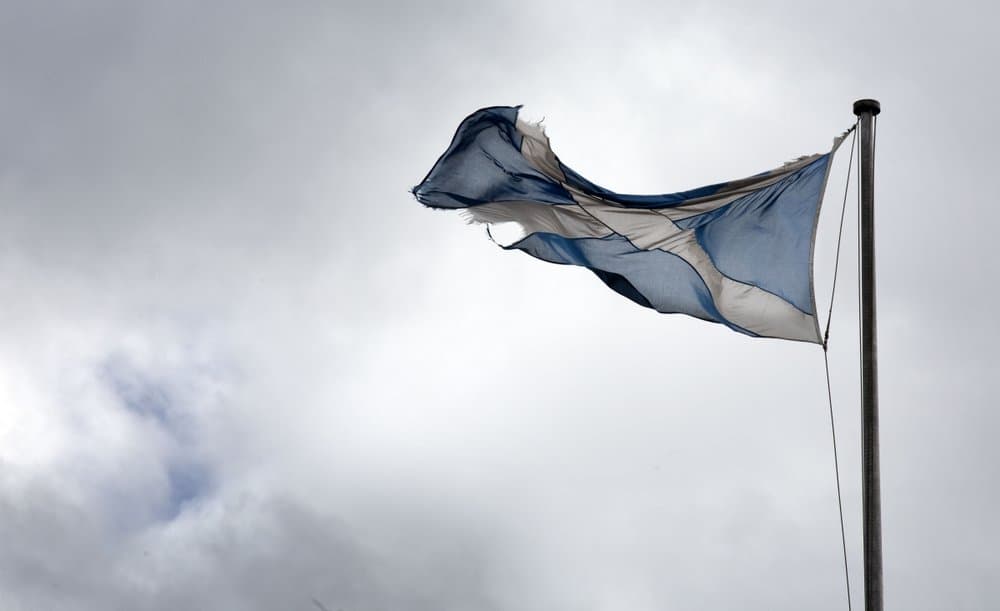LEICESTER, United Kingdom – Scotland’s Catholic bishops are urging the development of “satisfactory protocols” for treating or withholding treatment from patients and the exclusive use of “ethically sourced material” for the development of vaccines in a new pastoral letter.
The letter highlighted “reasons for hope, as we live through these difficult times,” and will be delivered to all of Scotland’s 500 parishes.
The letter was written the same week that the United Kingdom became the first country to start administering the Pfizer/BioNTech COVID-19 vaccine to care home patients.
Health Secretary Matt Hancock said on Tuesday that “the end is in sight, not just to this terrible pandemic but to the onerous restrictions that have made this year so hard for so many.”
The UK currently has 800,000 doses of the vaccine, but an estimated 50 million doses will be necessary to vaccinate all those considered at higher risk from the disease.
The Scottish bishops noted that the arrival of a vaccine means “it is now possible to see beyond the pandemic.”
However, the warned the effects of COVID-19 will be “deep and long-lasting.”
“Yet its effects will be deep and long-lasting. There is more hardship to come. For example, we have yet to see the worst ravages of unemployment or the damage done to the mental health of many,” their pastoral letter said.
“The public outcry at reports that suggested our care sector, especially our care homes, was at risk, manifested a new sense of appreciation of our elderly brothers and sisters and a determination to ensure adequate support for the elderly at home or in residential care. This bore welcome witness to a keen social conscience that valued our senior citizens. We hope that parity of esteem for the care sector and the [National Health Service] would be a lasting positive legacy of this crisis,” the bishops wrote.
“Similarly, we need to have satisfactory protocols for treating or withholding treatment from patients, especially where resources are strained. The Church reaffirms that in facing such difficult dilemmas patients and their loved ones should always be fully informed and involved in decision-making processes that cherish all lives equally,” the letter continued.
The Scottish bishops said the Church has “always adopted a holistic approach to care of the sick,” providing medical as well as pastoral and spiritual care. The said chaplains should have access to those seeking their care.
“Many in our society have revaluated and recognize anew the unique and positive contribution which faith communities bring to many situations within modern Scotland, and not only alone, but also in collaboration with the state sector and other groups,” the pastoral letter said.
The bishops noted the Church assisted local communities across Scotland in supporting the weak and the poor, the lonely and the anxious, and accompanying the dying and bereaved.
“There has been a growing awareness of the social harm caused when public worship and pastoral ministry are not available. The importance of bringing much needed love, hope and comfort and the social capital delivered by a vibrant faith commitment is now more widely recognized,” the bishops added, referring to the ban on public worship enacted during the crisis.
The bishops said they welcomed the news of the approval of the first vaccines for the UK and said they hoped this would “offer the prospect of some return to normal life.”
However, they expressed concern about use of fetal cell lines in the development and testing of many of the COVID-19 vaccines being developed.
“Contemporary society rightly pays attention to the ethical sourcing of commodities like food and clothing to ensure that the benefits to us do not come at a disproportionate cost. As similar concerns have been raised about vaccines,” the bishops said, adding that guidance from the Vatican states it is still ethical to take the vaccines because the “sourcing [of the fetal cell lines] is sufficiently remote.”
“While we affirm the ethical acceptability of taking these vaccines, we do not support bio-technological processes that develop products from abortion or research using these cell-lines. We hope that those with objections to such vaccines can be respected and offered alternatives, and we call upon companies to use only ethically sourced material,” the letter said.
Turning to the economy, the bishops pointed to the “unprecedented” level of support the government provided to support workers and employers whose livelihoods were threatened and said this showed society “recognized the precious sense of solidarity and peace that can come when efforts are made to look out for the common good of all.”
“We hope that, as the pandemic subsides, those positive developments acknowledged above will continue to underpin decision-making, especially for the poor, the unemployed and the marginalized,” they said.
“Recent generations have witnessed an ever-narrower calculation of human progress in terms of gross domestic product and a measure of happiness ever more exclusively tied to material wealth as a result of relentless work, with leisure time largely consisting of mass consumer entertainment. The Pandemic has challenged this way of living. It has allowed space for cherishing family time and the environment of friendships and nature,” the bishops added.
“The post-pandemic recovery offers hope for a flourishing of more natural and humane lifestyles.”
Follow Charles Collins on Twitter: @CharlesinRome















